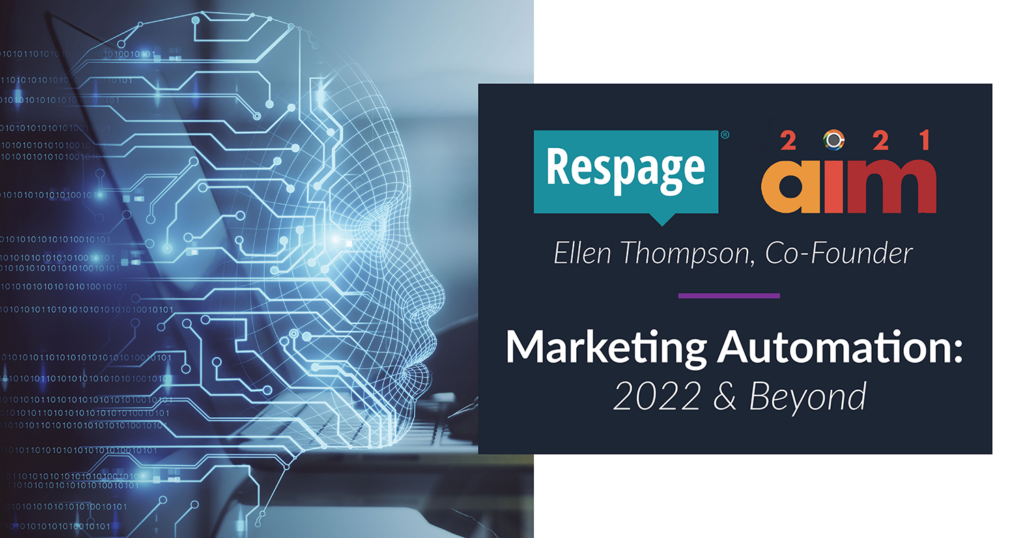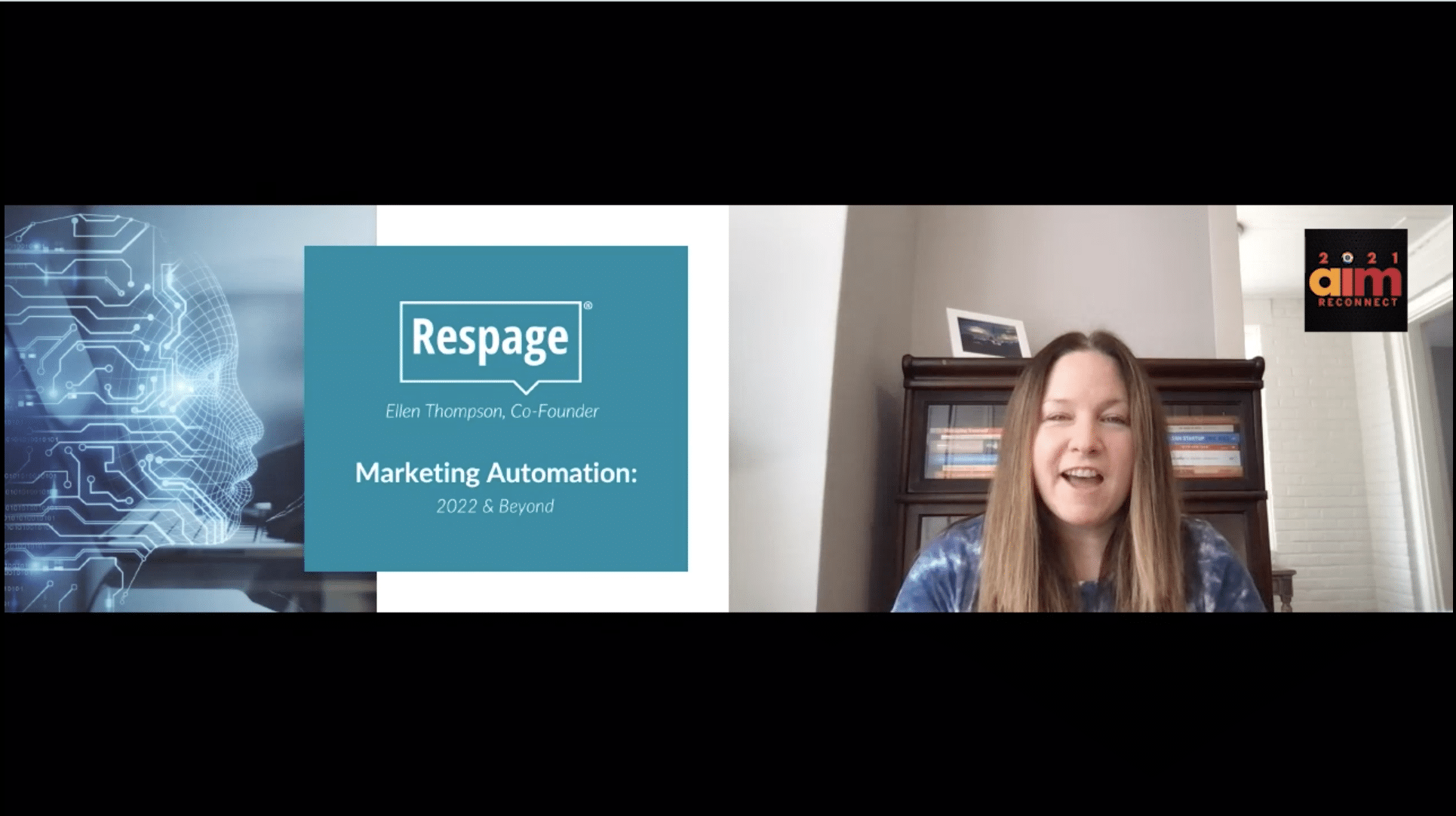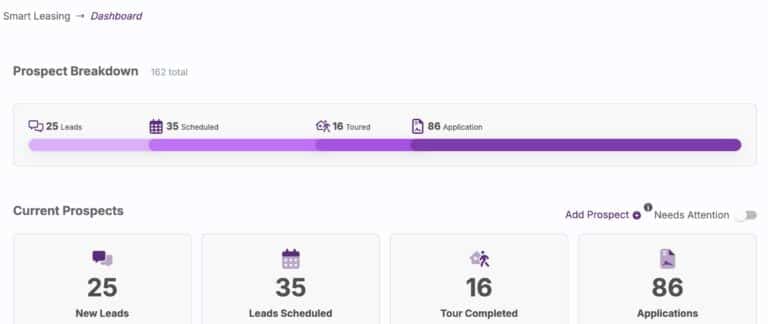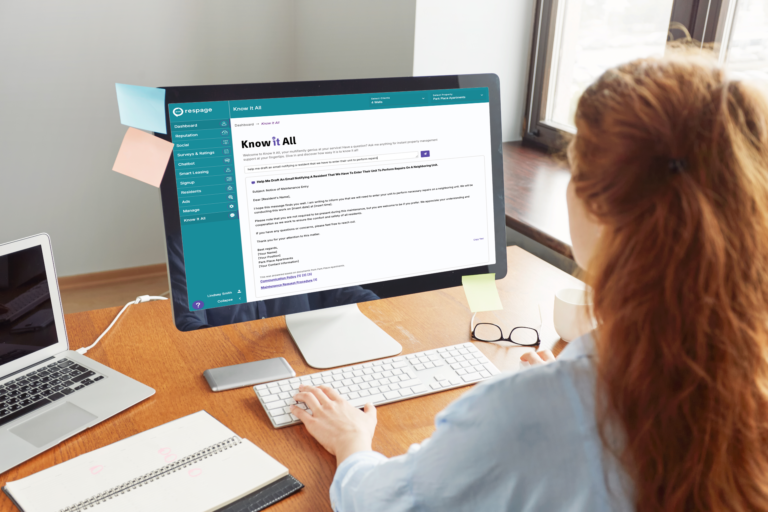Nurturing apartment leads can be time-consuming. It takes effort to turn a lead into a lease, and using a manual process increases the risk of leads falling through the cracks.
Marketing automation offers a possible solution. Using artificial intelligence, marketers can automate certain tasks, such as appointment reminders and follow-ups, to increase efficiency and speed while measuring results, and it’s a hot topic in Multifamily marketing.
Ellen Thompson, co-founder of Respage and Jess and founder of Results Repeat, presented on what’s next for Multifamily marketing automation at AIM Reconnect — the first of three events making up the 2021 Apartment Innovation and Marketing Conference, held virtually on May 4 and 5.
“The pace of change is going to continue to accelerate, and so we need to be thinking not just about what’s happening now, but also what will be happening in the future,” she said.
In this post, we’ll go over the key points in Thompson’s presentation as we look to 2022 and beyond.
Lead automation: Getting apartment prospects to take action
When it comes to apartment marketing, Thompson said the stages in the process can be broken down into three parts: Lead, Lease, and Life.
Lead involves apartment lead generation — getting people to visit the apartment website and take action, like filling out a contact form.
Lease is the part of the process that nurtures the apartment lead and ultimately results in a signed lease.
Finally, Life is the resident life experience, which will inform whether they will renew.
Thompson shared some ideas about what’s possible in the future for apartment lead automation, including:
Anonymous visitor recognition: This is the ability to identify a website user based on the IP address. The user’s subsequent visits are tracked and the analytics are stored. Marketers could then follow the user’s path and figure out which marketing channel resulted in the apartment lead conversion, such as a user filling out an application.
Spending automation: When it comes to apartment Google Ads, marketers usually continue advertising even when occupancy is high, which means some leads could be overlooked. Thompson pictures a process where the Google Ads account is connected to a community’s customer relationship management (CRM) software, and will automatically turn on apartment ads when there is a need for them, like when occupancy is lower.
AI-driven content creation: What if we could use AI to write the best headline, or suggest the best photo? This could be possible thanks to advancements in natural language generation, meaning apartment content could be written by a bot, saving Multifamily companies time and money.
Leasing automation: Nurturing a relationship to turn apartment leads into leases
AI leasing, which includes apartment chatbots, has been around for a few years, and the COVID-19 pandemic has accelerated its adoption. For 2022 and beyond, Thompson pictures a world in which Multifamily doubles down on these trends. A few of her ideas:
Integrated AI leasing: In the future, there could be one platform that manages all communication platforms, from the phone to chat to email, which will make human leasing agents’ jobs easier.
AI-assisted self-guided tours: Imagine being on a self-guided tour and having the ability to ask questions via your mobile device through an automated assistant who helps you along the way.
Resident life automation: Keeping residents happy so that they keep you happy
At the heart of any apartment community are the residents, and ensuring that they’re satisfied is what drives a community forward.
“Resident life is really important because it’s that resident life experience that creates those great reviews,” Thompson said. “It’s the resident life experience that creates the occupancy of the future because people will renew and be happy there.”
Automation could come into play with resident life in numerous ways, including:
Automated review response: Rather than having a human write responses to apartment reviews, natural language generation could be deployed to reply to reviews without any human help.
Resident profiling: Apartment communities could create a resident profile consisting of all of the touchpoints and sentiments a resident has expressed. This could help identify residents that might be at risk of not renewing their lease. Property managers could then reach out to those who don’t seem happy to check in and smooth out the relationship rather than simply sending a lease renewal without any communication.
Alexa / Siri for maintenance: Rather than filling out an online form or calling the leasing office, in the future a resident could simply ask Alexa or Siri to file a maintenance request, or complete any number of requests that usually require more steps.
Wireless monitoring and automatic reporting of maintenance issues: Speaking of filing a maintenance request, Thompson envisions a future in which an appliance knows when it needs servicing and arranges for it on its own, before the resident is even aware that there’s an issue.
Conclusion
In addition to the ideas around apartment lead, leasing, and resident life automation, Thompson also offered some final thoughts about big data integrations that could be possible in Multifamily.
One is weather service integration, which could not only be used to remind residents to grab an umbrella, but it could also predict whether prospects will show up for apartment tours based on the forecast.
Another is demographic and housing market data, which could be used to fine-tune apartment pricing as well as create predictive budget models for apartment marketing.
Click below to watch Thompson’s 26-minute presentation. What do you see on the horizon for apartment marketing automation in 2022 and beyond?







